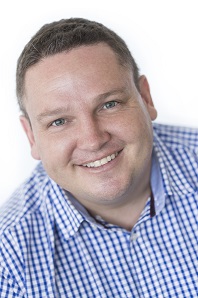Did You Know: you can experience anxiety symptoms when you’re not feeling anxious?
There is an issue known as limited symptom panic attacks. These are when your body has less than four of the physical symptoms of an anxiety attack, eg chest tightness or pain, shortness of breath, sweating, nausea and palpitations – and they may occur even when you’re not suffering from anxiety.
Those that get panic attacks are prone to these limited symptom attacks and experience issues like chest pain and shortness of breath without any triggers – often leading to future worries about their own health (could it be a heart attack?). It’s hard to know if you have limited symptom attacks without knowing your anxiety.

Dealing with Anxiety and Panic Attacks
Anxiety and panic attacks are usually treated by setting sufferers up with psychological therapy, medication, or both. Whichever route you and your doctor take, it will need time to work, so try to be patient. When people follow through with their treatment plan, most of them find relief and have no permanent problems.
Psychotherapy: Like with many other conditions, knowledge, insight, and awareness gives us a sense of control and reassurance. Psycho-education on anxiety and panic attacks helps us understand our anxiety and panic attacks better and it helps to normalise the experience.
The treatment may begin with “talk therapy”, where you sit down with a therapist who can help you understand what anxiety or panic disorder is and how you can manage it.
As your treatment continues, therapy should help you figure out the situations, thoughts, or feelings that cause your attacks. Once you understand what is happening, those triggers have less power to cause trouble.
Therapy will also show you that the attacks’ physical effects don’t actually hurt you. With your therapist, you will work through your symptoms in a safe, gradual way until they seem less scary. By reducing the fear of these attacks, they often decrease in intensity.
You will also learn relaxation and grounding techniques through mindfulness training, that can help you handle attacks when they do happen. If you can control your breathing, for instance, that may make a panic attack less severe. It might also make the next one less likely. You have to practice these skills regularly in your daily life to get the benefit.
Medication: Your doctor or psychiatrist may decide that medication should be part of your therapy, to lessen your attacks’ physical symptoms. You and your doctor may have to try more than one medication before finding what works best. Some people do best with more than one type.
Helpful Lifestyle Habits: In addition to your treatment, you may also find that these everyday habits make a difference:
- Yoga or deep breathing may relax your body and lower stress.
- Exercise can help calm your mind and offset potential side effects of medication, such as weight gain.
- Reduce or avoid alcoholic drinks, caffeine, smoking, and recreational drugs, which can trigger attacks.
- Practice good sleep hygiene and ensure you get enough sleep.
Get Support: While you’re working to get better, it helps to have people around you to help. If you join a support group, you could draw strength and encouragement from others who face the same challenges. Your loved ones can pitch in, too. Health professionals more and more recommend treatment programs that include spouses, partners, or families. For instance, the people around you can help you practice relaxation techniques or other skills.
If you’re a friend or family member of someone who’s dealing with panic attacks, be patient with them. Never scold or judge. Learn their signs of stress so you can watch for them and be a calming influence. If your loved one does have a panic attack, stay calm and help them get whatever aid they need.
 Author: Willem van den Berg, B SocSci (Psychology & Criminology), B SocSci (Hons) (Psych), MSc Clinical Psychology.
Author: Willem van den Berg, B SocSci (Psychology & Criminology), B SocSci (Hons) (Psych), MSc Clinical Psychology.
Willem van den Berg is a Brisbane Psychologist with a compassionate, positive and non-judgmental approach, working with individuals, couples and families. His therapeutic toolbox includes evidence-based therapies including Clinical Hypnotherapy (Medical Hypno-Analysis), CBT, ACT and Interpersonal Therapy. William is fluent in both English and Afrikaans.
To make an appointment try Online Booking. Alternatively, you can call Vision Psychology Brisbane on (07) 3088 5422.